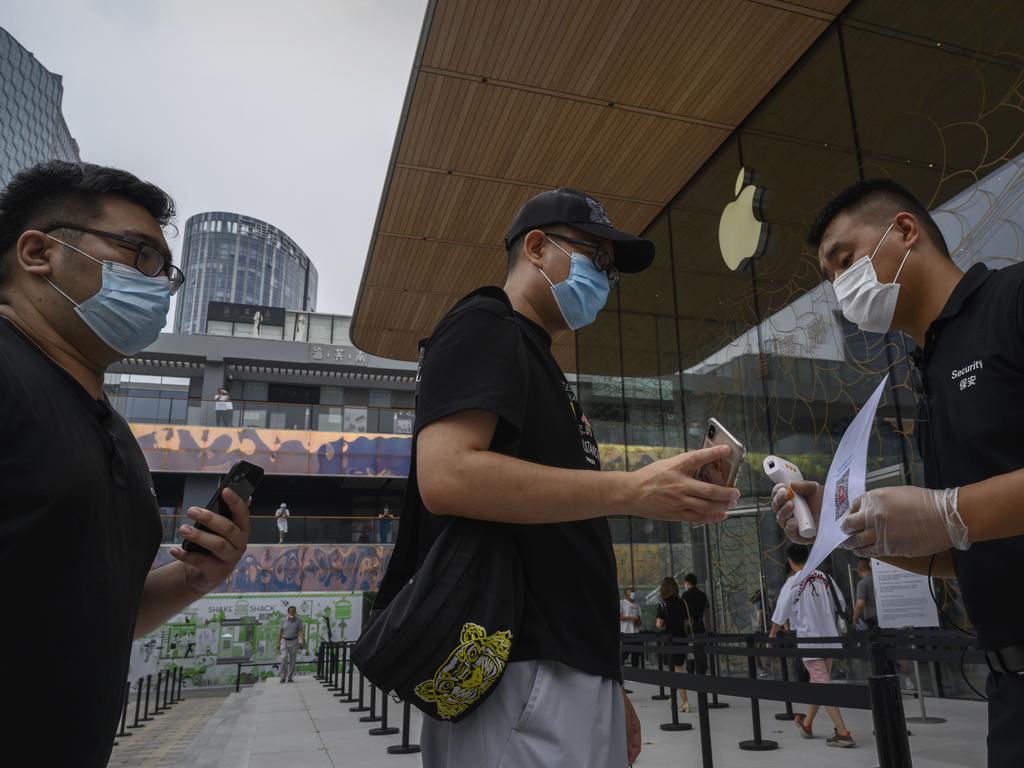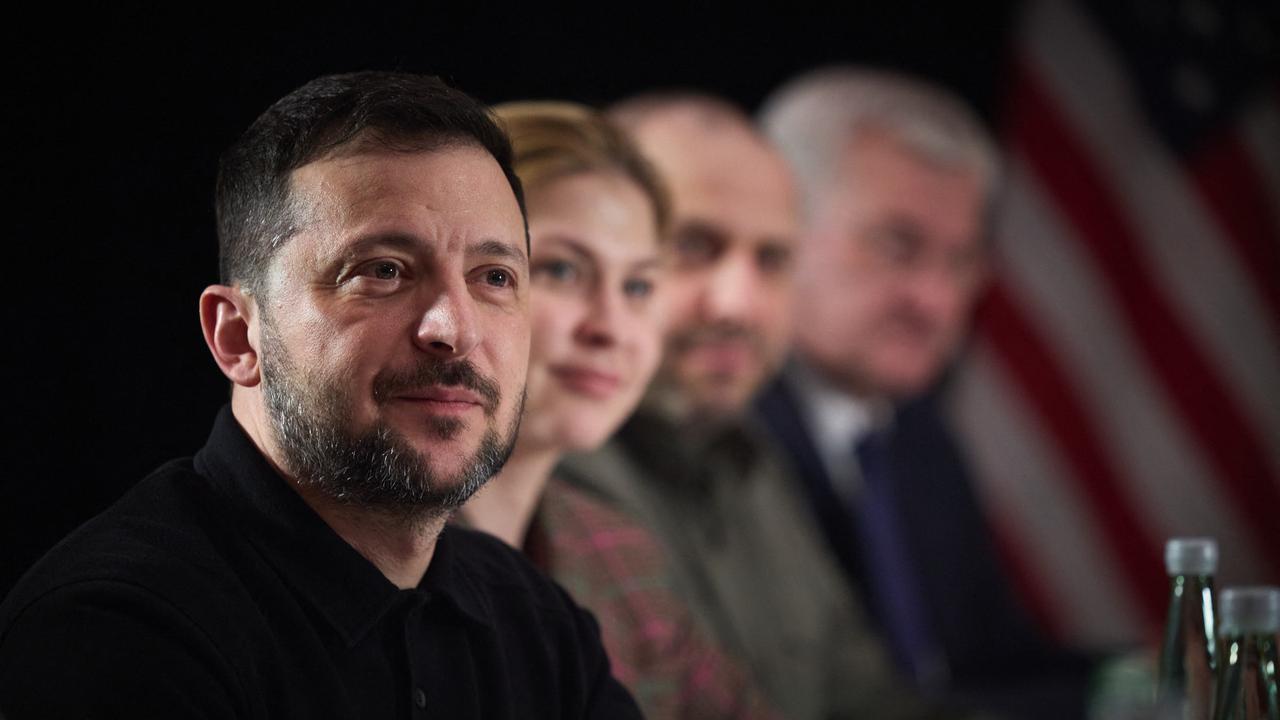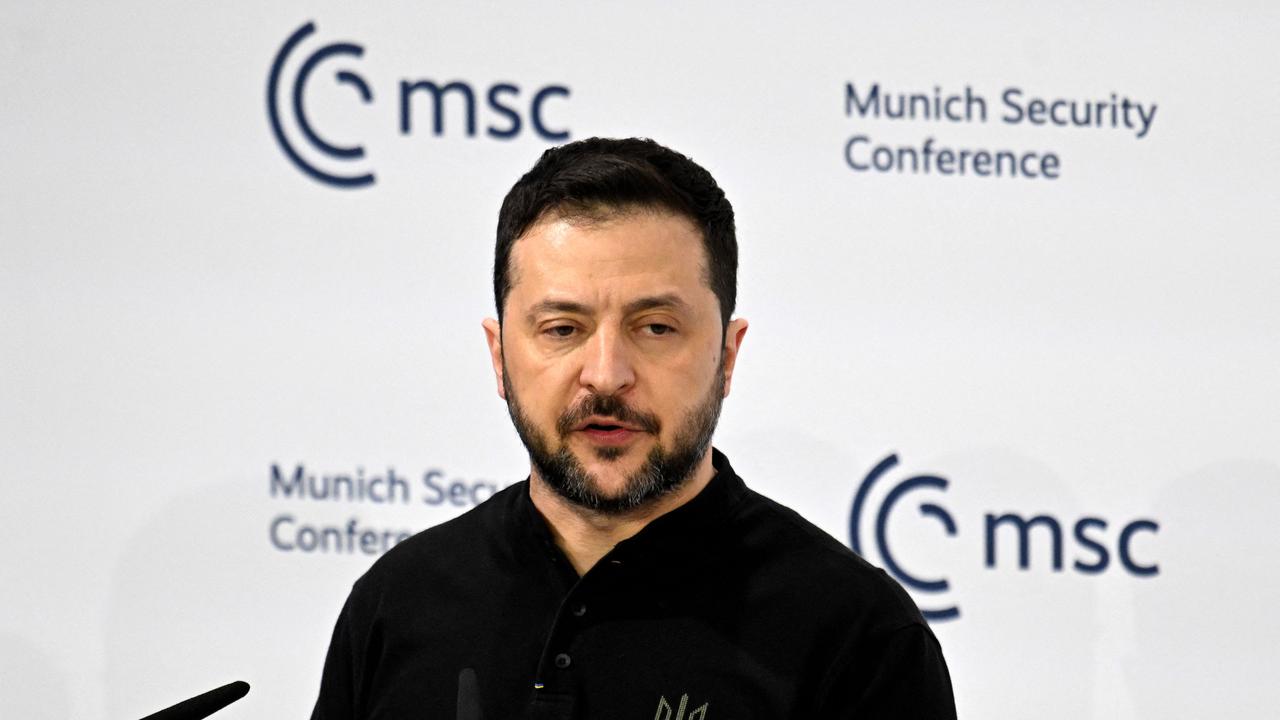Coronavirus: EU deadlocked on $1.2 trillion rescue plan
An EU summit to agree on a huge coronavirus economic rescue package could collapse without a deal, Angela Merkel has warned.
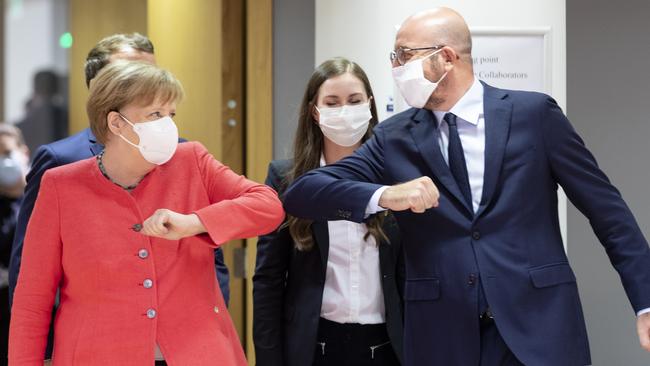
An EU summit to agree on a huge coronavirus economic rescue package could collapse without a deal, German Chancellor Angela Merkel warned on Sunday, as the global death toll climbed to more than 600,000.
The pandemic, which has spawned economic mayhem worldwide, also saw the G20 — the world’s most industrialised nations — consider extending debt relief for coronavirus-hit poor countries in the next six months.
The 27 EU leaders have argued for two days over the scale and rules for the package, with The Netherlands leading a band of “frugal” allies in demanding lower budgets and tougher conditions for handouts.
Arriving for what she said was probably the “decisive” third day of the extraordinary Brussels summit, Mrs Merkel said there were still many divisions among the leaders.
“I still can’t say whether a solution will be found,” she said. “There is a lot of good will … but it may also be that no result will be achieved today.”
The veteran German leader joined French President Emmanuel Macron and the summit host, European Council president Charles Michel, to prepare a new offer to break the logjam after Dutch Prime Minister Mark Rutte and his “Frugal Five” allies blocked a deal.
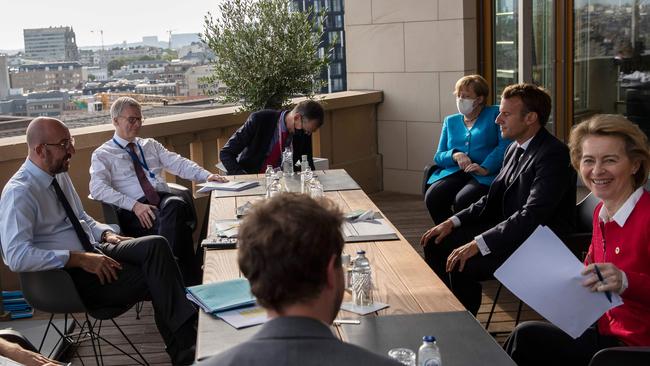
The Dutch want member states to have a say over national bailouts to ensure countries carry out labour market reforms, while Austria, Finland, Denmark and Sweden want to see the up to €750bn ($1.2 trillion) package of loans and subsidies cut down.
Mr Michel’s latest plan includes a “super emergency brake” that gives any country a three-day window to trigger a review by all member states of another’s spending plans.
Meanwhile Barcelona, one of Europe’s most visited cities, effectively went back into lockdown on Saturday.
Spain’s COVID-19 death toll of 28,420 is one of Europe’s worst and the country has identified more than 150 new virus clusters across the country. The regional government of Catalonia urged nearly four million residents of Barcelona to stay home unless absolutely necessary, banning gatherings of more than 10 people and shutting cinemas, theatres and nightclubs, after the number of new cases tripled in a week.
The virus has killed 602,800 people and infected more than 14.3m worldwide, as the disease continues to surge across the globe despite months of unprecedented lockdowns. The number of deaths linked to COVID-19 has doubled in just over two months, and more than 100,000 new deaths have been registered in the three weeks since June 28.
The US, the hardest-hit country in the pandemic, on Saturday added more than 60,000 new cases, raising its total to 3.7 million, with 140,000 deaths.
France, where masks will be compulsory in indoor public spaces from Monday, was closely watching coronavirus clusters in neighbouring Spain, Prime Minister Jean Castex said, less than a month after the border between the two countries was reopened.
When asked about possible border closures, Mr Castex responded: “It is a real issue that we also need to discuss with the Spanish authorities”.
India hit a million cases on Friday, the day Brazil topped two million, although the World Health Organisation said Brazil’s contagion has “plateaued” with the rate of infection stabilising after 77,000 deaths.
World Bank president David Malpass called for a debt suspension initiative for poorer coronavirus-hit countries to be extended through to the end of next year, while multiple charities said it needs to be stretched through 2022 to avert a “catastrophe for hundreds of millions of people”.
In their final statement after virtual talks hosted by Riyadh, G20 ministers and bankers said they would “consider a possible extension of the (debt suspension initiative) in the second half of 2020”. So far 42 countries have applied for the initiative, asking for a cumulative $US5.3bn in debt to be deferred.
Addressing the impact of the virus on the world’s poorest, UN Secretary-General Antonio Guterres said the pandemic had revealed the “fragile skeleton” of societies and could push 100 million people into extreme poverty.
“Entire regions that were making progress on eradicating poverty and narrowing inequality have been set back years, in a matter of months,” he warned.
AFP


